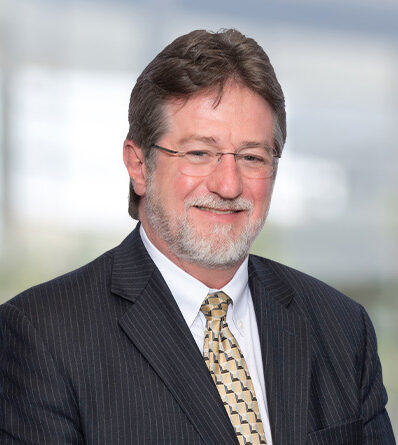Finding IP Value
Unanimous Music Modernization Act Passage and Enactment Positively Impacts the Music Industry

On October 11, 2018, President Trump signed into law the Orrin G. Hatch – Bob Goodlatte Music Modernization Act (“Act”), which had unanimously passed both the House of Representatives and the Senate. The Act has been praised by often-times divergent groups in the music industry – e.g. songwriters, publishers, digital streaming services, performance rights organizations – as being a “truly historic moment for the music industry.” See e.g. Variety, Oct. 11, 2018 “Trump Signs Sweeping New Music Licensing Legislation,” quoting BMI President and CEO Mike O’Neil.
The Act actually is comprised of three separate pieces of legislation:
- The Music Licensing Modernization Act (“MLMA”) (Title I of the Act);
- Compensating Legacy Artists for Their Songs, Service and Important Contributions to Society Act (“CLASSICS Act”) (Title II of the Act); and
- Allocation for Music Producers Act (“AMP Act”) (Title III of the Act).
Changes Under the MLMA
The MLMA makes significant changes with regard to the setting, collection and payment of royalties earned under mechanical licenses in light of technological advances in the distribution of music (e.g. downloads from digital streaming services). As background, a music copyright protects both the song – referred to as a “musical work” in MLMA (usually controlled by the songwriter and publisher) – and the sound recording (usually controlled by the record label). Generally, royalties are paid upon use of (i) a song through mechanical licenses and (ii) a sound recording through performance licenses.
The MLMA establishes that the downloading of a song is a mechanical reproduction which requires payment of a mechanical royalty from the digital service provider. The MLMA establishes a new centralized mechanical licensing entity – the Mechanical Licensing Collective (“MLC”) – that will collect and pay to songwriters and music publishers mechanical royalties owed by digital service providers. The MLC will compile and maintain a publicly available database of songs and sound recordings (which is anticipated to be the most extensive in the industry) through which to then collect and distribute the applicable mechanical royalties. The MLC will be governed by a board of directors of 14 voting members consisting of music publishers and songwriters, giving those groups representation and impact regarding mechanical licenses not heretofore afforded.
The MLMA establishes that digital service providers can gain a blanket mechanical license from the MLC that will address payment of the mechanical royalties on each use of the song by the digital service provider. Upon gaining a blanket mechanical license, and if otherwise in compliance with the MLMA, a digital service provider would be exempt from statutory damages regarding use of songs.
The MLMA also establishes that in setting mechanical license rates, a “willing buyer – willing seller” standard will apply, as has been the case with rate setting for performance royalties.
The MLMA broadens the array of federal district court judges in the Southern District of New York before whom performance rights disputes with the performing rights organizations would be brought by establishing a draw amongst numerous judges in that district, whereas the former law limited such disputes to be before either one of two judges.
Changes Under the CLASSICS Act
Prior to enactment of the Act, digital performance of sound recordings “fixed” (e.g. recorded to/on a physical object – a phono record, a tape, a disc, etc.) prior to February 15, 1972, were unprotected by federal copyright laws. What protections there were existed under state laws, which were not uniform and difficult to enforce. With the passage of the Act, which includes the CLASSICS Act (Section 201, et seq. of the Act), there are copyright protections and copyright remedies for the unauthorized digital performances of pre-February 15, 1972 sound recordings (i.e. sound recordings fixed between January 1, 1923 and February 15, 1972). The CLASSICS Act dictates that in order for a transmission of a pre-February 15, 1972 sound recording to be authorized, licenses allowing such use must be in place, or the “transmitting entity” must give notice to the copyright holders and must pay statutory royalties in relation to that use.
The CLASSICS Act, therefore, dictates that the owner of copyrights to pre-February 15, 1972 sound recordings will realize payment of royalties for digital performances of that sound recording while providing a structure to the “transmitting entity” to avoid unauthorized use.
Changes Under the AMP Act
The AMP Act (Section 301, et seq. of the Act) provides the ability of a sound recording’s producer, mixer or sound engineer to share in royalties paid upon a sound recording. The AMP Act provides that a non-profit collective designated by the Copyright Royalty Judges will accept “letters of direction” from artist payees “to distribute to a producer, mixer or sound engineer, who was part of the creative process that created the sound recording, a portion of the payments to which the artist payee would otherwise be entitled from the licensing of transmissions of the sound recording.” The “non-profit collective” will keep track of and distribute amounts as set forth in the “letters of direction.”
For sound recordings fixed prior to November 1, 1995, and for which there are no “letter of direction,” the non-profit collective will hold 2 percent of all receipts that are collected from the licensing of that pre-November 1, 1995 sound recording. The AMP Act then sets forth procedures by which (i) the producer/mixer/sound engineer can claim a portion of the monies held as well as (ii) the “artist payee” may object.
Summary
The Act addresses ways of making the collection and distribution of mechanical royalties owed from digital users more efficient, comprehensive and predictable; it provides for legacy artists to realize revenue from the use of pre-1972 sound recordings and it provides the opportunity for producers, mixers and sound engineers to receive compensation for their involvement in the creative process of creating a sound recording. While time will be the judge as to the administrative implementation of these changes, the unanimity of the various industry groups and the unanimity of Congress in passing the Act bodes well for the intended effects of the legislation to be realized.
